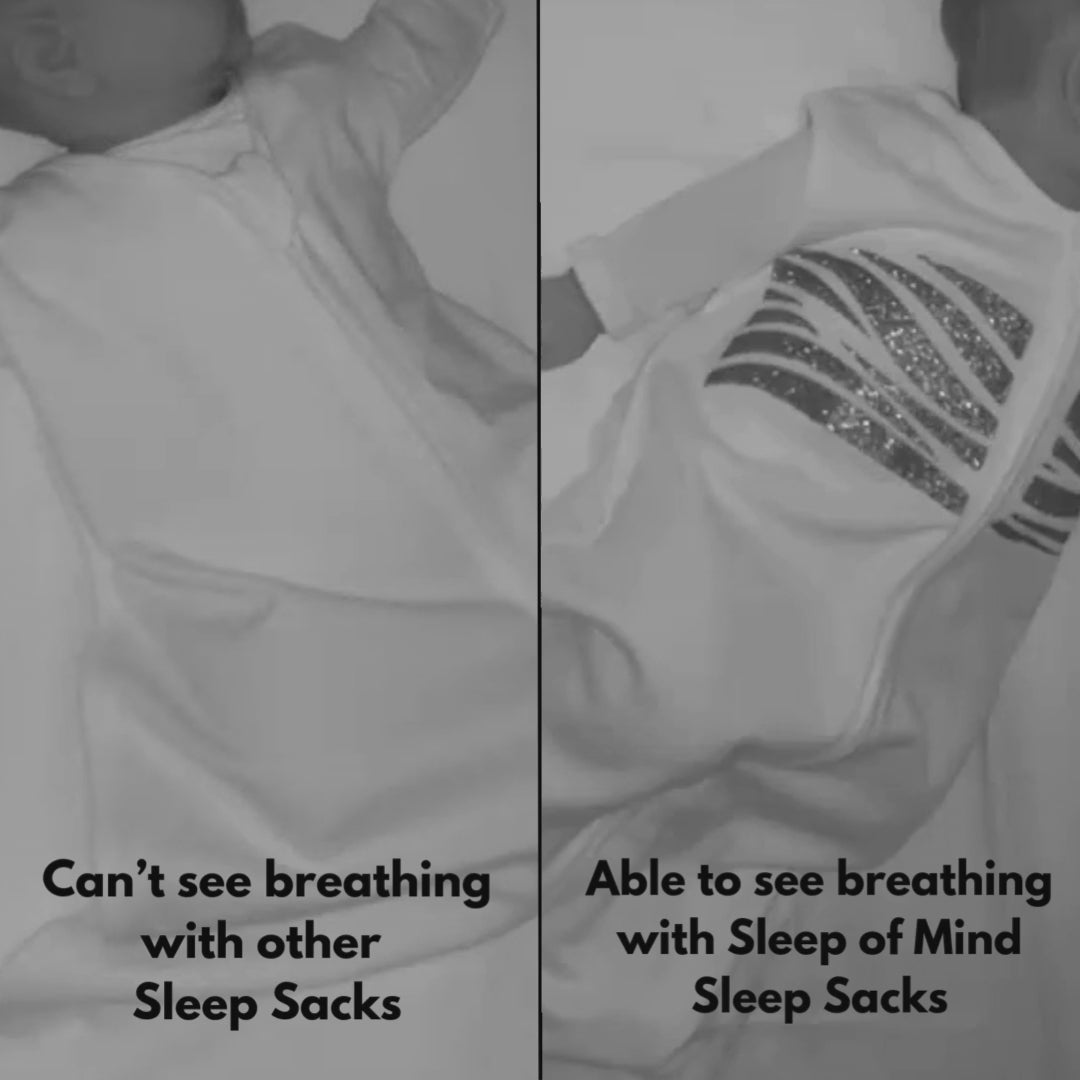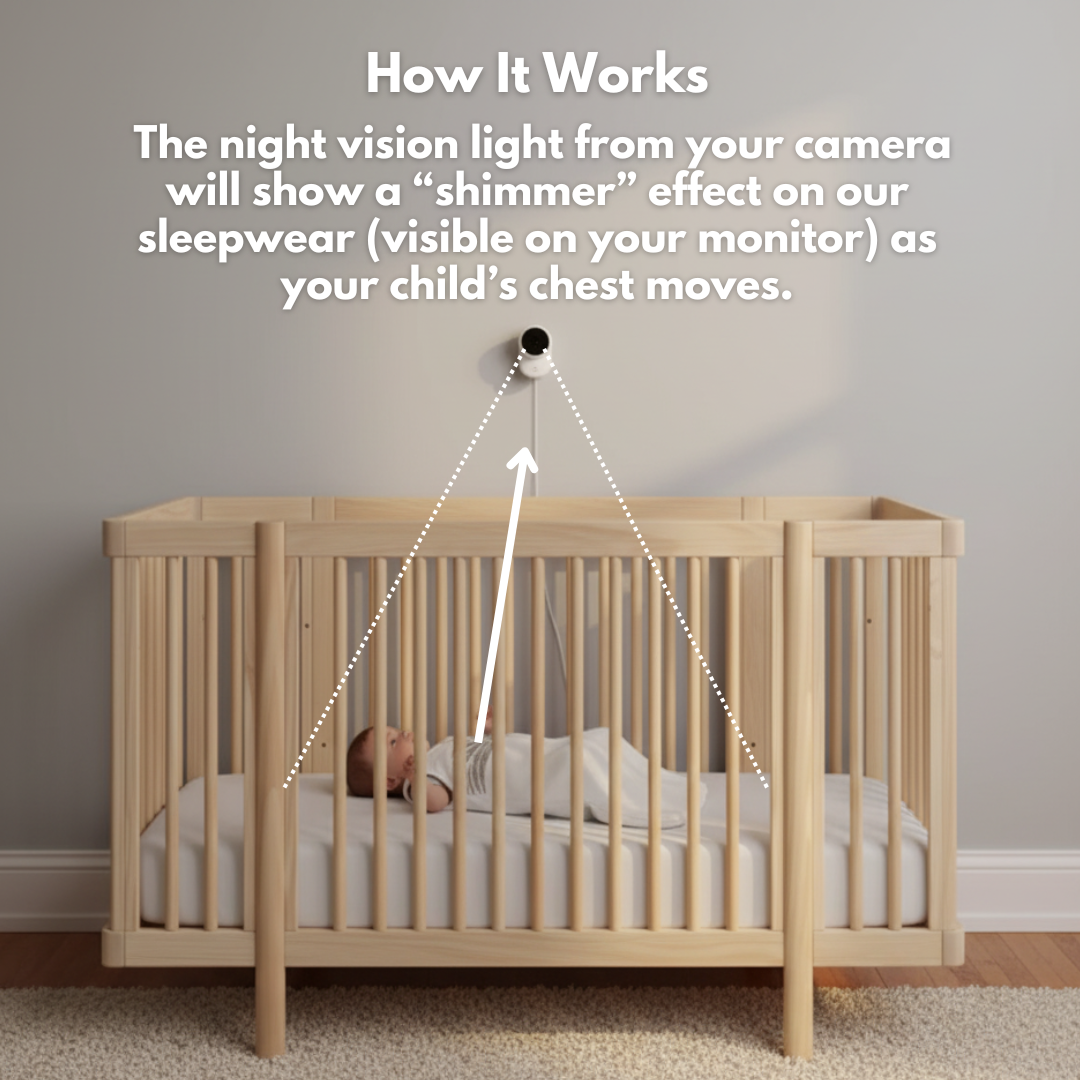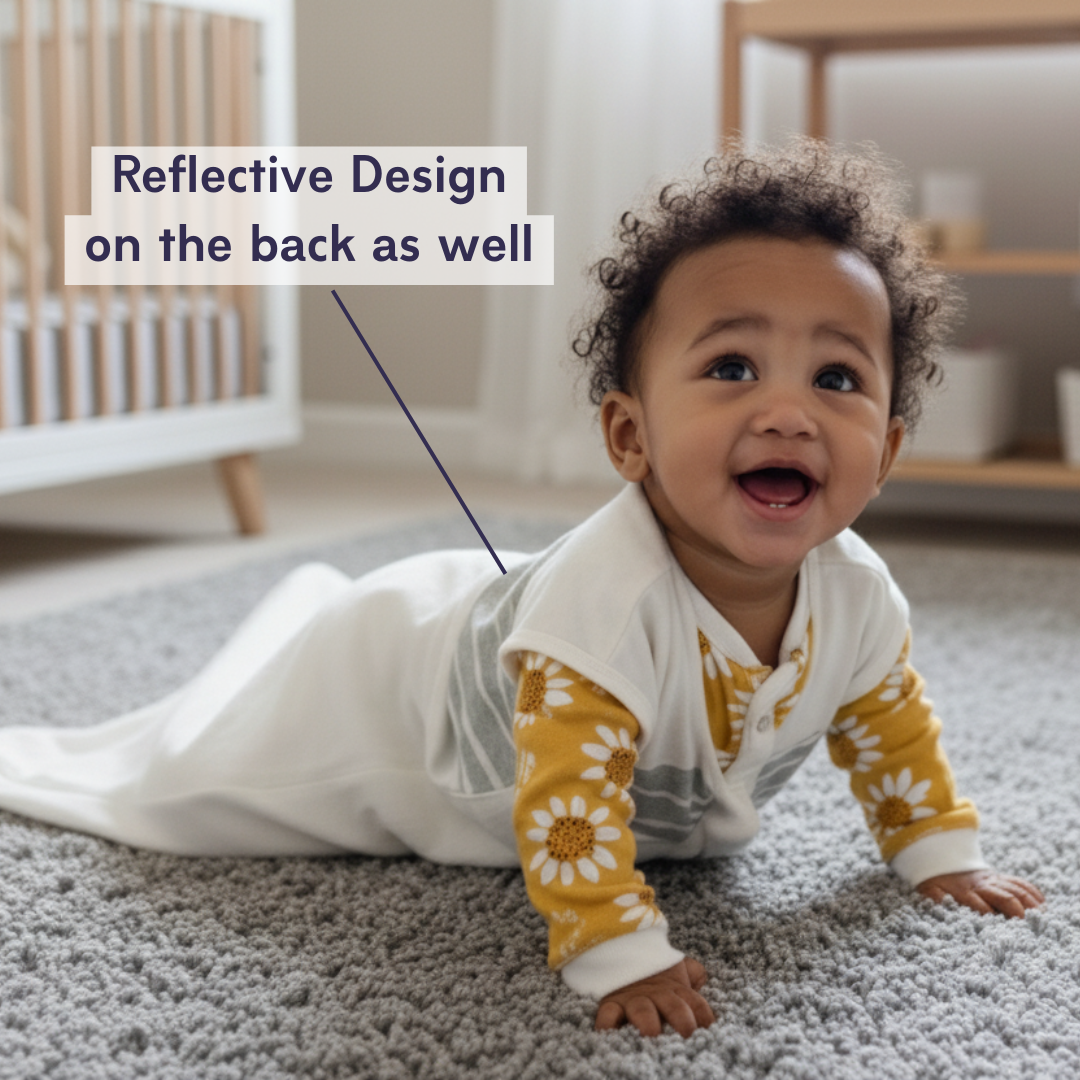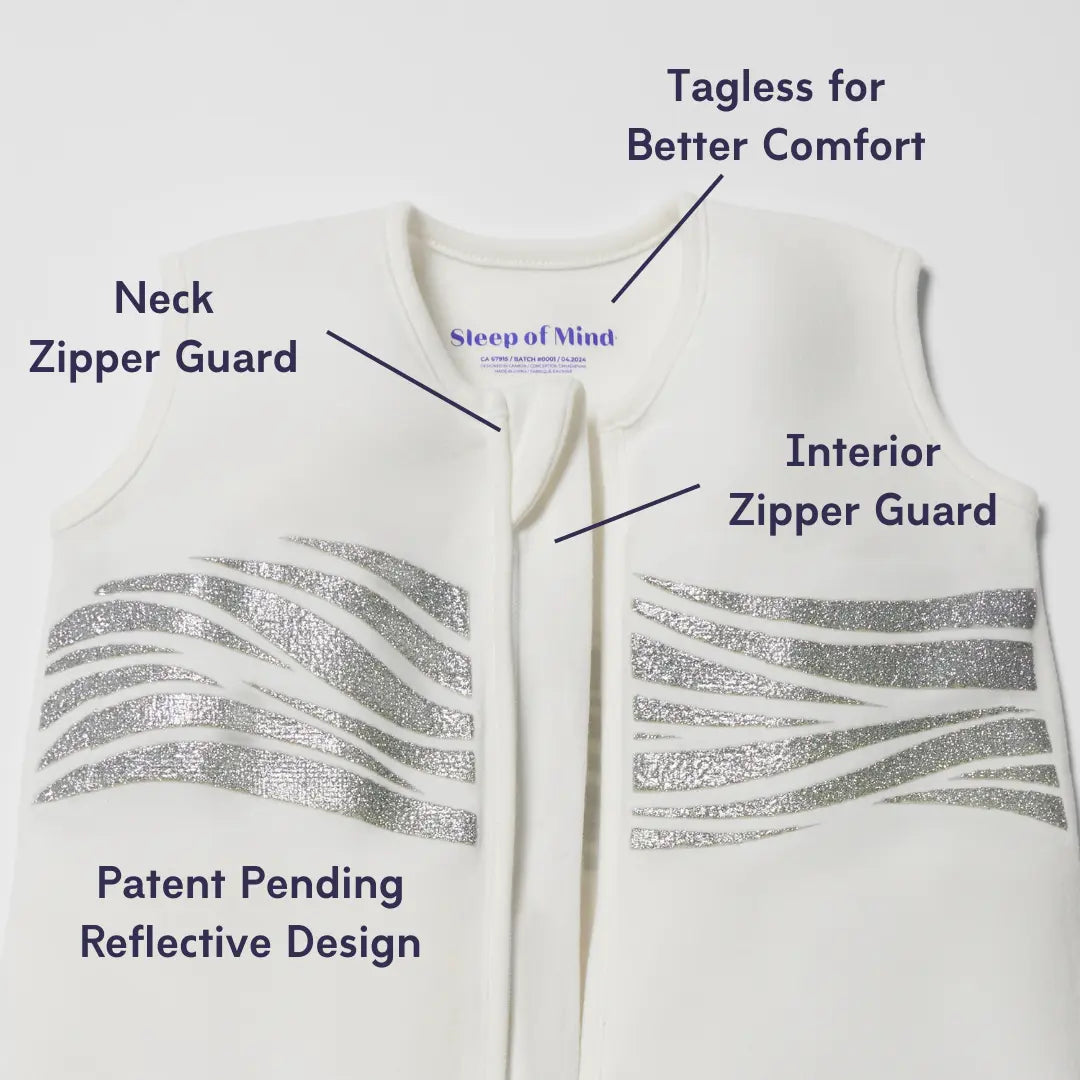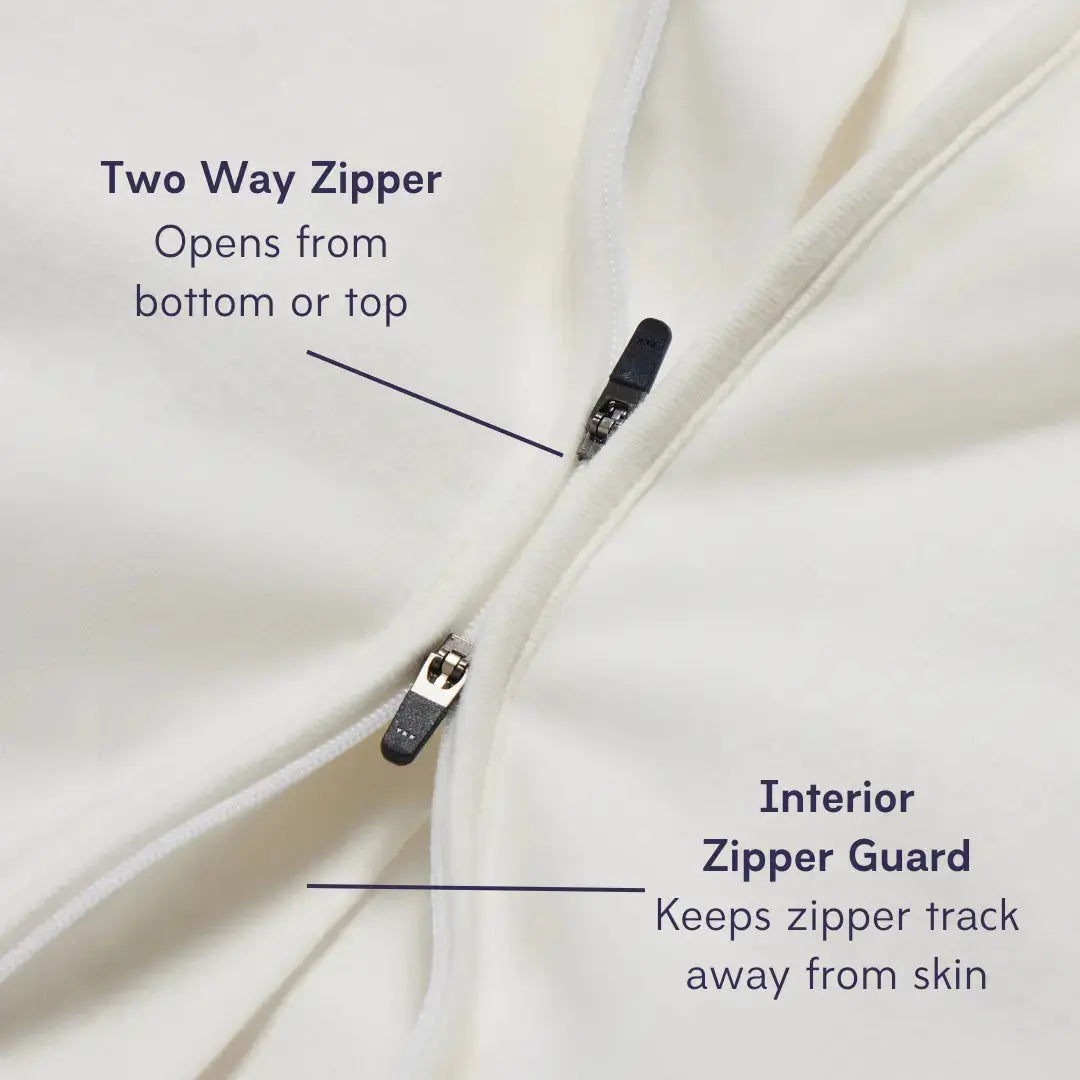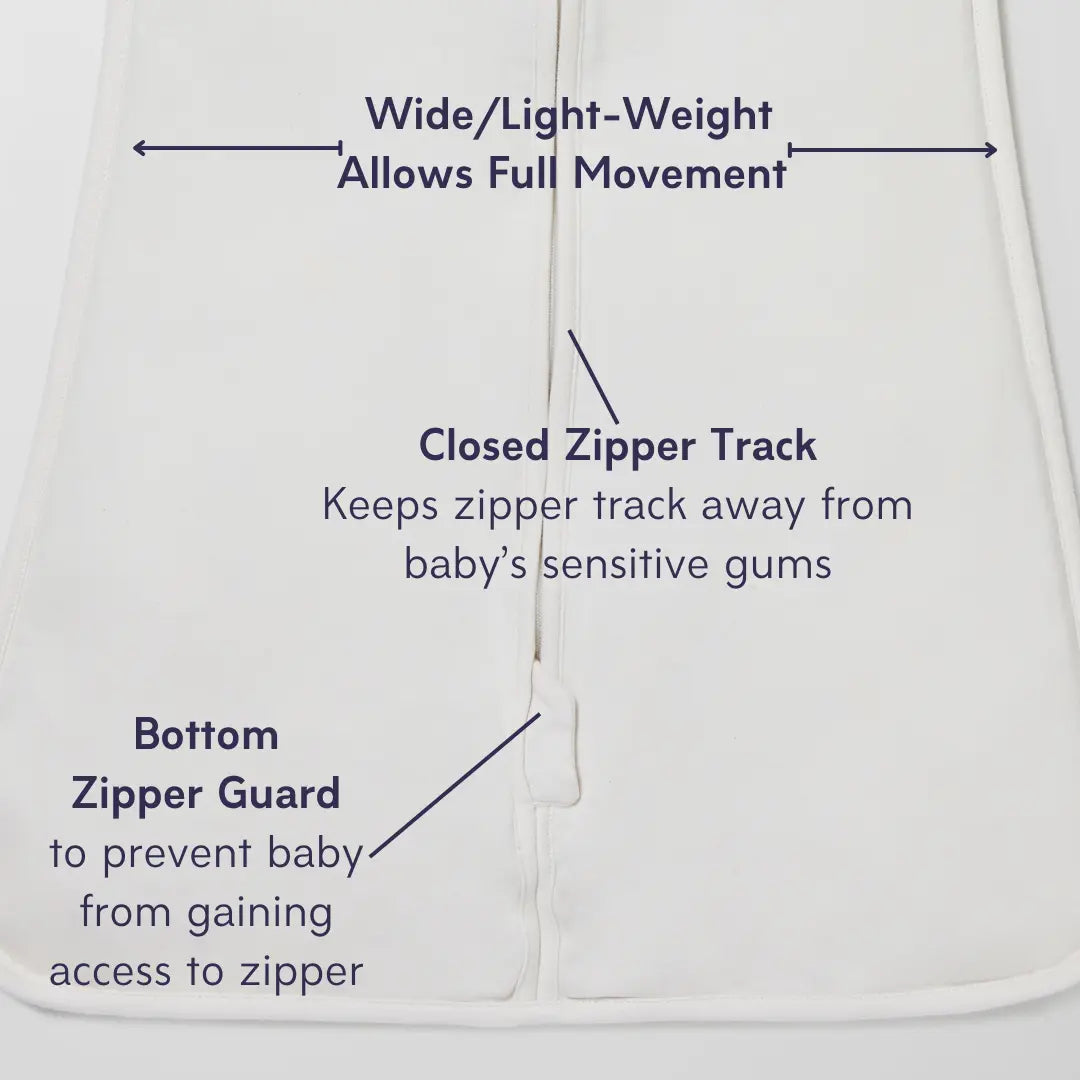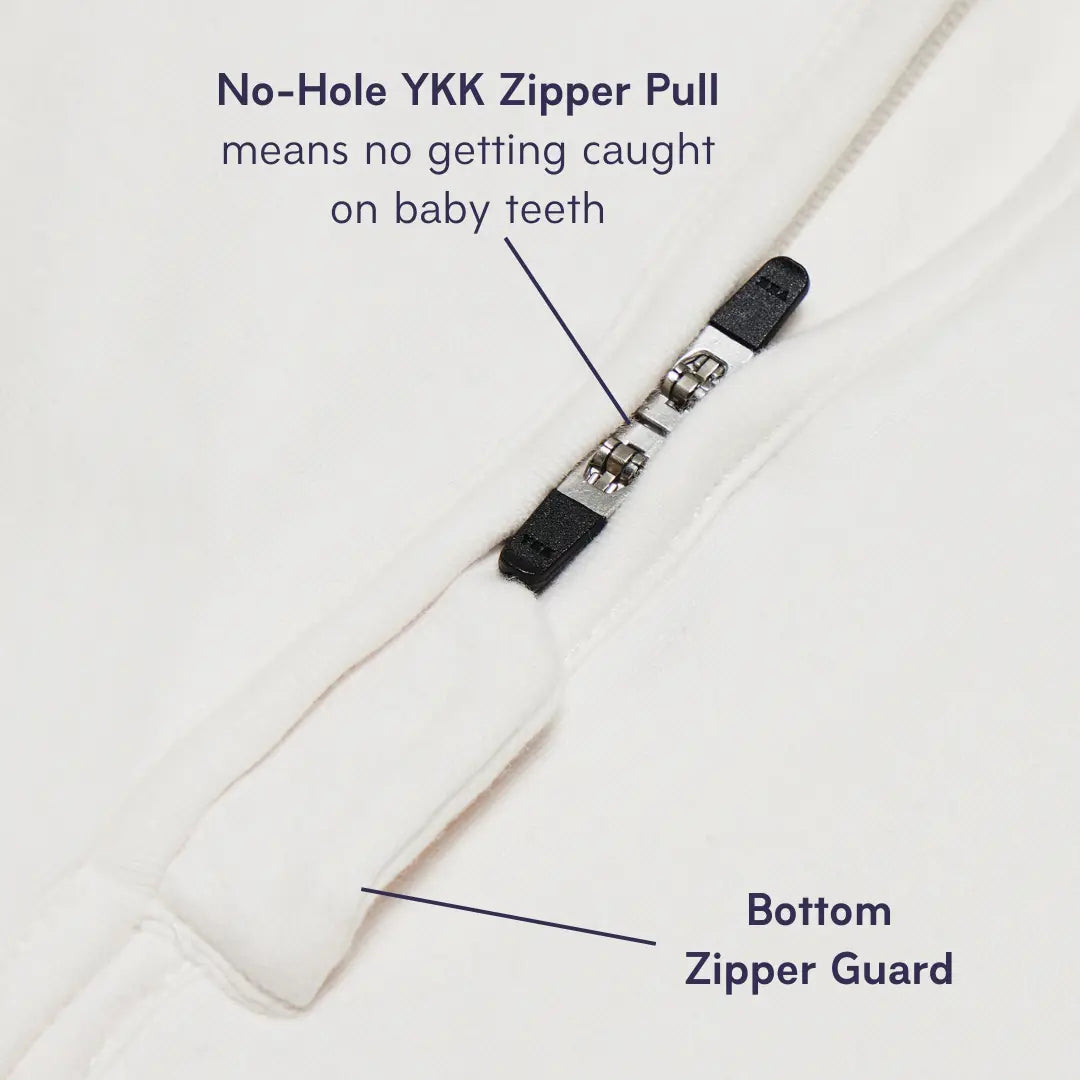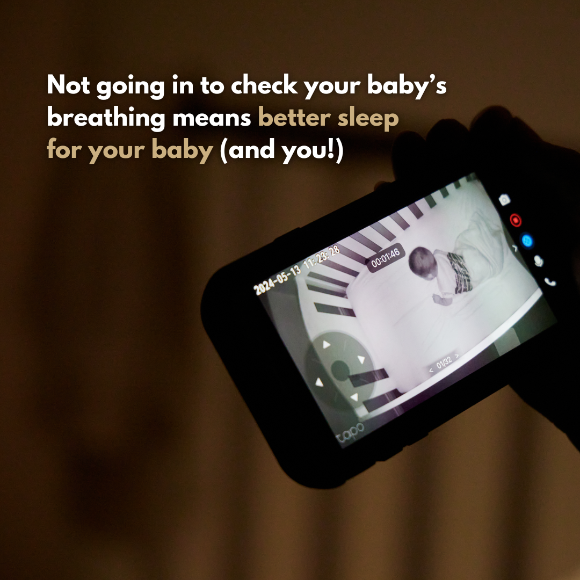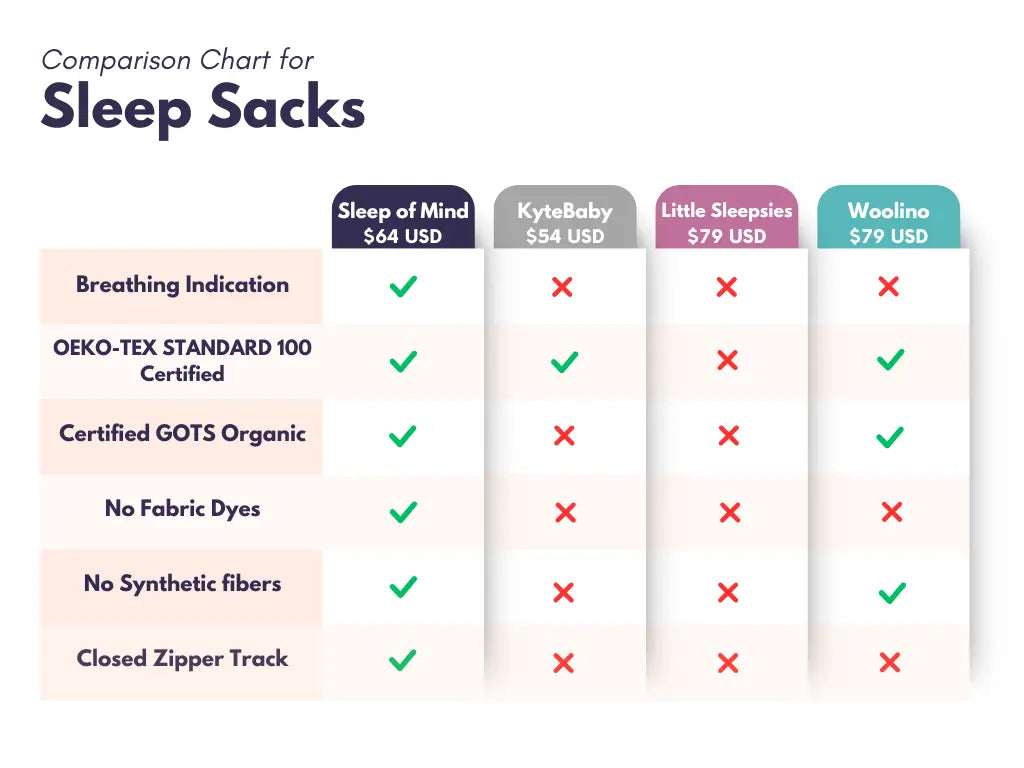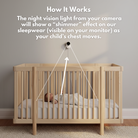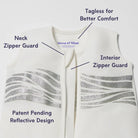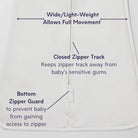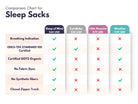Why Do They Call it a Sleep Regression?
This is a period of disrupted sleep for infants and toddlers. It typically occurs when a child, who previously slept well for nights and naps, suddenly starts having more difficulties sleeping. They could start waking more through the night, having early rises, short naps and taking longer to fall asleep at bedtime. These regressions can be temporary, lasting around 3 to 6 weeks, but the timeframe really depends on the cause of the sleep regression and how caregivers react.
What Causes a Sleep Regression?
They are often triggered by developmental milestones, changes in routine like vacations, going through illness or teething, or change in environments. Developmental milestones are a time when babies become more interested in practicing their new skills rather than sleeping. Other causes like changes in routine, illness and environmental change can cause a child to lose sleep. Regardless of cause, losing sleep, or accumulating sleep debt, can cause a child to become overtired which makes falling asleep and staying asleep much harder. This cycle of sleep debt accumulation needs to be managed in order for the child to come out of the sleep regression and get back on track. We’ll discuss how to do that so print this out and have it handy through the first few years!

Major Sleep Regressions and How to Manage Through Them
The 4 Month Sleep Regression:
Babies experience their first regression as their sleep cycles mature from shorter newborn cycles to longer adult ones. The longer sleep cycles start off at the beginning of the night mostly in deep sleep, but transition to more frequent cycles of light sleep towards the early morning hours. This causes babies to wake and cry more in the early morning hours, because they haven’t had practice falling asleep in this state yet.

Parents who are unaware of this developmental milestone, inadvertently think their baby who once slept well through the night, has now become hungry and often respond with a feed when it may not be needed. Talk to your doctor at their 4 month check-up to get a sense of if your baby still requires night feeds or not, before you run into this regression. This is also a great time to offer your baby a chance to transition from co-dependent sleep associations (ie. rocking, nursing, patting) to independent sleep associations, where your baby is the one putting themselves to sleep. A child who has these skills before the 4 month sleep regression will be able to manage through it much more easily.
The Rolling Sleep Regression Between 4 – 6 months:

Between 4 – 6 months, babies begin wanting to sleep on their front, because they instinctively know that they’ll feel safe and more secure this way (vital organs being more protected in this position). However it doesn’t all happen at once. They need to develop the strength and the skills to roll over, so while this desire is strengthening, and the skills are not yet mastered, there can be a lot of frustration in the crib at sleep time.
Help your baby gain the strength needed and practice the skills helpful to rolling back to belly, and belly to back. The sooner they are able to do this on their own, the happier they will be when it’s time to sleep. Remember: always put your baby down on their back to sleep and ensure you’re following the American Academy of Pediatrics safe sleep environment guidelines.
PRO-TIP: If your baby is able to roll well on the play mat but is struggling in the crib, that might be due to their sleep sack being too restrictive. The Sleep of Mind sleep sack is a wider cut and uses a light weight organic cotton, so that it gives baby much more freedom of movement. Less frustration, more sleep! Plus it helps indicate breathing - check it out!
The 6 Month Sleep Regression:

Another regression may occur due to growth spurts, introduction of solids, or new physical abilities like rolling or sitting independently. Also, babies who don’t yet have the skills needed to fall asleep independently at sleep onset and through the night, can find their sleep further eroding at this age due to the sleep debt that has been accumulated from the 4 month sleep regression.
Make sure baby gets lots of practice transitioning to sitting up independently and develop those muscles needed for this skill. Take your time on introducing solids and consider baby led feeding, so your baby is in full control of what they experience when it comes to new tastes and textures. Babies can become overwhelmed by too many new things especially when they aren’t able to hold, squish, play, throw and taste these new substances. Let them explore at their own pace.
By this age it will also help to allow them space to learn independent sleep skills if not done already, in order to pay back any sleep debt from the 4 month sleep regression. A child who is overtired may be too stimulated by the presence of a parent, which leads to poor sleep as well.
The 8-10 Month Sleep Regression:

New cognitive and motor developmental milestones are exploding during these months. Language, object permanence, crawling and standing can disrupt sleep patterns. This is because your baby becomes so much more interested in their world and prefers practicing these new skills instead of sleeping. Separation anxiety also peaks at this age with object permanence, as babies learn that they can be physically separated now from their parents (instead of being attached like they once believed).
Play with your baby! The more play you can engage in around object permanence and communication (repetition of naming objects or waving goodbye) the better at this age. Try to prioritize games that involve 1 on 1 connection between you and baby. The more your baby can feel your warmth and love during this phase, the less separation anxiety they’ll feel. Peekaboo, making funny faces, teaching hand gestures, are all things parents can do that keep the connection alive.
And don’t forget all the crawling and standing practice as well! Elevate toys on a wall so baby needs to play on their knees in a vertical position. Or place things at eye level to encourage pulling to stand.
Most of all, give lots of crib time! If your baby wakes up early from a nap, give them the full nap length to allow them time to go back to sleep whenever they choose. This also helps to avoid letting them become overstimulated and overtired by being out of the crib too long before the next sleep period. Stick to your schedule and eventually when the skills are mastered, they will go back to sleeping well if they aren’t overtired.
The 12 Month Sleep Regression:

Major milestones such as cruising and walking can lead to excitement and sleep disturbances. You’ll often notice sleep gets much worse, like skipping the afternoon nap, as a baby gets closer to mastering independent steps.
This is a big one because it involves mastering walking, which is a game changer for babies. Its an exciting yet sometimes scary thing so have lots of patience and give lots of practice.
You also want to keep your baby on 2 naps until closer to 17 or 18 months old. Many babies like skipping their second nap during this regression, but make sure you offer them the full nap time as when the regression is over, they’ll go back to napping well if they haven’t accumulated too much sleep debt. Lots of crib time is key to preventing your baby from getting overtired, as being in a dark and unstimulating environment is helpful for avoiding overstimulation.
The 18-24 Month Sleep Regression:

Toddlers may regress due to language development and testing boundaries as they learn more about what they can and can’t do. This can lead to a child crying at bedtime after the parents leave the room, when they used to go to sleep easily.
Your child wants to learn what boundaries they can push and which ones are solid. The a parent acts when their child runs into the street is different than when their child runs into the kitchen. Asking for another cookie is also different than grabbing at the knives. These are all interesting experiments for toddlers at this age, so be firm, loving and understanding when communicating your boundaries about sleep. If your child suddenly starts protesting bedtime, listen to their feelings, tell them you understand, give them a hug as they cry, then let them know you’ll be close by as they fall asleep. You can decide where you’ll be and how much or little support to provide them, but it’s best you don’t completely change up your boundaries and create new habits that aren’t sustainable for your family in the long run. If you’re having trouble, enlist the help of a sleep expert who can provide you with many resources for this regression.
What Parents Can Do To Manage A Sleep Regression
Here are some general guidelines for all sleep regressions.
Establish Consistent Bedtime Routine:
Create a soothing bedtime routine with activities like bath time, reading, and cuddling to signal sleep time.
More Crib Time:
Offer more crib time, even if your child seems like they aren’t tired and all they want to do is play. Being out of the crib means they won’t have a chance to sleep, so if you end a nap early, you won’t know if your child would have ever fallen back to sleep. Once the regression is over they’ll go back to sleeping normally, so keeping to the regular schedule is important.
Provide Connection:
Offer extra connection time during periods of anxiety or separation anxiety to help your baby feel secure. Play games like peekaboo to get them laughing with you and feeling your warm energy, helping them feel like all is well.
Minimize Changes:
Avoid introducing new habits during a regression that could become long-term expectations for your baby, especially if these expectations are not sustainable for you. It’s ok to offer a bit more reassurance than usual when needed, as long as you gradually pull back when the skill or milestone has been mastered, or else we risk the regression becoming permanent.
Optimize Sleep Environment:
Ensure the sleeping area is conducive to rest—quiet, dark, and cool. Re-evaluate if the room is actually dark enough. Sleep is easiest in a pitch black room where your child can’t see any light and become distracted. Light also decreases the release of melatonin which we want during sleep periods. For more on this see #1 Baby Sleep Tip: Create An Optimal Sleep Environment

If your child's sleep regression persists beyond 6 weeks or if you have concerns, consult a sleep expert. Remember, while sleep regressions can be challenging, they are a normal part of your baby's development and will eventually pass if you’re following our tips above.



